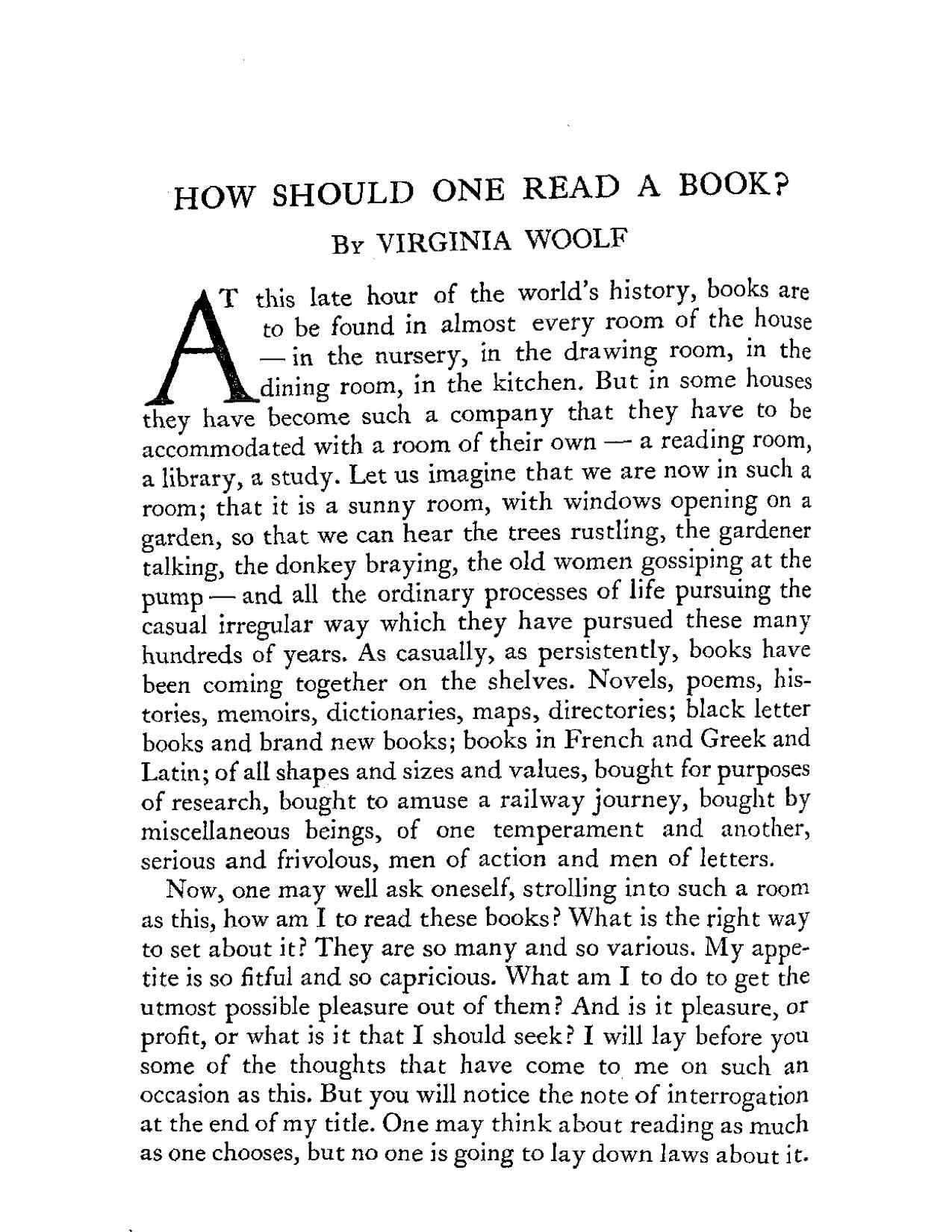
HOW SHOULD ONE READ A BOOK?
By Virginia Woolf
AT this late hour of the world’s history, books are
to be found in almost every room of the house
—in the nursery, in the drawing room, in the
dining room, in the kitchen. But in some houses
they have become such a company that they have to be
accommodated with a room of their own—a reading room,
a library, a study. Let us imagine that we are now in such a
room; that it is a sunny room, with windows opening on a
garden, so that we can hear the trees rustling, the gardener
talking, the donkey braying, the old women gossiping at the
pump—and all the ordinary processes of life pursuing the
casual irregular way which they have pursued these many
hundreds of years. As casually, as persistently, books have
been coming together on the shelves. Novels, poems, his-
tories, memoirs, dictionaries, maps, directories; black letter
books and brand new books; books in French and Greek and
Latin; of all shapes and sizes and values, bought for purposes
of research, bought to amuse a railway journey, bought by
miscellaneous beings, of one temperament and another,
serious and frivolous, men of action and men of letters.
Now, one may well ask oneself, strolling into such a room
as this, how am I to read these books? What is the right way
to set about it? They are so many and so various. My appe-
tite is so fitful and so capricious. What am I to do to get the
utmost possible pleasure out of them? And is it pleasure, or
profit, or what is it that I should seek? I will lay before you
some of the thoughts that have come to me on such an
occasion as this. But you will notice the note of interrogation
at the end of my title. One may think about reading as much
as one chooses, but no one is going to lay down laws about it.






